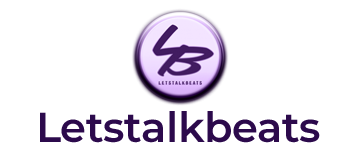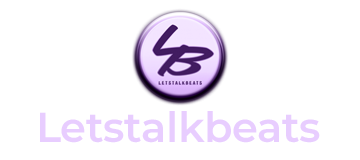Understanding Self-Publishing For Underground Rappers
Self-publishing can be a game-changing move for up-and-coming rappers and producers, allowing them to maintain control over their music, creative vision, and revenue streams. This approach provides artists with the flexibility to make decisions about their work without the restrictions often associated with traditional record labels or publishers. In this guide, we’ll dive deeper into self-publishing, offering a comprehensive breakdown of the process and its key aspects to help artists make informed decisions.
What is Self-Publishing?
Self-publishing in music means that an artist independently releases their music without the involvement of a traditional record label or publishing company. This route allows artists to take full ownership of their music and its distribution. Unlike the traditional system, where a label or publisher would take a significant portion of the revenue and control the rights to the music, self-publishing empowers artists to retain full control over their work. For rappers and producers, this translates to more freedom in creative decision-making and flexibility when engaging with fans.
Benefits of Self-Publishing
One of the biggest draws of self-publishing is the ability to maintain creative control. This means artists can make the music they want, without the influence of a label demanding changes or trying to fit them into a commercial mold. Self-publishing also allows artists to receive higher revenue percentages from their work. Without a label taking a cut, more of the profits from streams, sales, and performances flow directly to the artist.
Another advantage is the direct engagement with fans. Artists can interact more personally with their audience, creating a deeper connection and fostering a loyal fanbase. Plus, self-publishing allows for quick decision-making. Without a label slowing down the process, artists can release music as soon as it’s ready, capitalizing on trends and staying fresh in their fans’ minds.
Registering & Protecting Your Self Published Music
When you create a piece of music, you automatically hold the copyright to that work. Meaning you own it from the moment it’s created. However, to strengthen your claim, especially in cases of disputes or infringement, it’s essential to register your music with the U.S. Copyright Office or similar entities in your country. This provides a formal, legal record of your ownership and allows you to take legal action if someone uses your music without permission.
To collect royalties from your music, particularly for public performances like radio play, live shows, or streaming, you need to register with a Performing Rights Organization (PRO), such as ASCAP, BMI, or SESAC. These organizations help you collect performance royalties from various outlets. Joining a PRO is one of the first steps every self-published artist should take to ensure they are earning income from their work being publicly performed.
Distribution & Direct Sales For Independent Rappers
To make your music accessible to a global audience, you’ll need to distribute it across major streaming platforms like Spotify, Apple Music, and YouTube Music. Services such as DistroKid, TuneCore, and CD Baby are popular digital distribution platforms that help artists get their music on these services. These platforms allow self-published artists to reach millions of potential listeners while keeping a larger portion of the revenue compared to signing with a label.
For artists who want to keep even more of the profits, selling music directly to fans can be a powerful strategy. Platforms like Bandcamp or even better your own website allow you to bypass streaming platforms and sell your music directly, keeping a higher percentage of the revenue. This direct approach also fosters closer fan interactions and gives you more control over pricing and distribution.
Marketing and Promoting Self Published Music
Having strong social media engagement is crucial for self-published artists. Platforms like Instagram, TikTok, and X allow artists to connect with their audience on a personal level, building a dedicated fanbase. Consistently sharing behind-the-scenes content, music updates, and personal stories helps to create a community around your music.
Visuals are a powerful tool for promoting your music. Creating high-quality music videos or short visual clips to accompany your tracks can boost your reach and engagement. Platforms like YouTube and social media make it easy to share this content widely, helping you grow your following and introduce your music to new audiences.
Collaborating with other artists, producers, or influencers can expose your music to new audiences. By working with other creatives, you can combine fanbases and create art that benefits both parties. It’s also a great way to build relationships within the business and expand your reach.
Building a Brand as a Self Published Rapper
A strong brand can set you apart in the crowded music industry. Develop a unique identity and story that resonates with your audience. Your brand should reflect your personality, your journey as an artist, and the message in your music. Whether it’s through your style, your lyrics, or your visuals, create a cohesive image that connects with your fans on a deeper level.
Consistency is key to building a lasting brand. Regularly releasing new music, staying active on social media, and maintaining a consistent image across all platforms helps you stay relevant in the minds of your fans. Consistency builds trust with your audience, encouraging them to support your music long-term.
To succeed as a self-published artist, networking is crucial. Attend music events, conferences, and workshops to meet other artists, producers, and industry professionals. Building relationships within the industry can open doors to new opportunities and collaborations.
Joining and engaging with online music communities and forums can also be beneficial. Platforms where independent artists share knowledge, provide feedback, and support each other’s growth are great places to promote your music and collaborate with others.
Legal Considerations for Self Published Music
When collaborating with other artists or producers, be sure to have clear contracts and agreements in place. This ensures that everyone involved understands their rights, especially regarding royalties and music ownership. Legal clarity helps to avoid misunderstandings and protects all parties involved.
Understand the difference between publishing rights and recording rights. If you’re both the songwriter and the producer of a track, you’ll hold multiple rights to the music. It’s essential to protect these rights, especially when entering into any agreements or licensing your music for use by others.
Education and Self Publishing Resources
As the music entrepreneurship adapts, it’s important to continue learning. Consider taking workshops or coaching on music production, marketing, and the business side of music entrepreneurship. Enhancing your knowledge and skills can help you navigate self-publishing more effectively. There are numerous books, blogs, and podcasts available that cover topics related to self-publishing and the music industry. Investing time in education and staying updated on industry trends can keep you competitive and prepared for challenges.
Final Thoughts
Self-publishing offers a pathway to independence for rappers and producers, providing greater control over their creative process and financial returns. By understanding the steps involved—registering your music, distributing it, marketing yourself, and monetizing your work—you can successfully navigate the music industry on your terms. With the right strategy, dedication, and networking, self-publishing allows artists to take their careers into their own hands and achieve lasting success.
Justin David
Creative man • Philosopher • Artist • Producer






